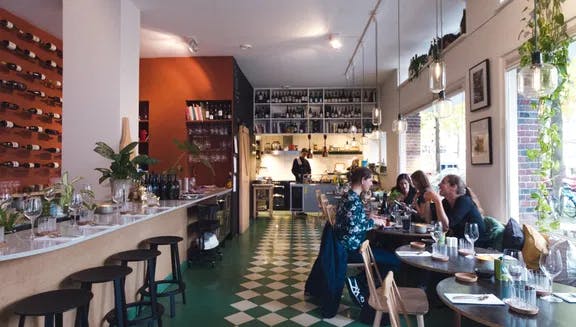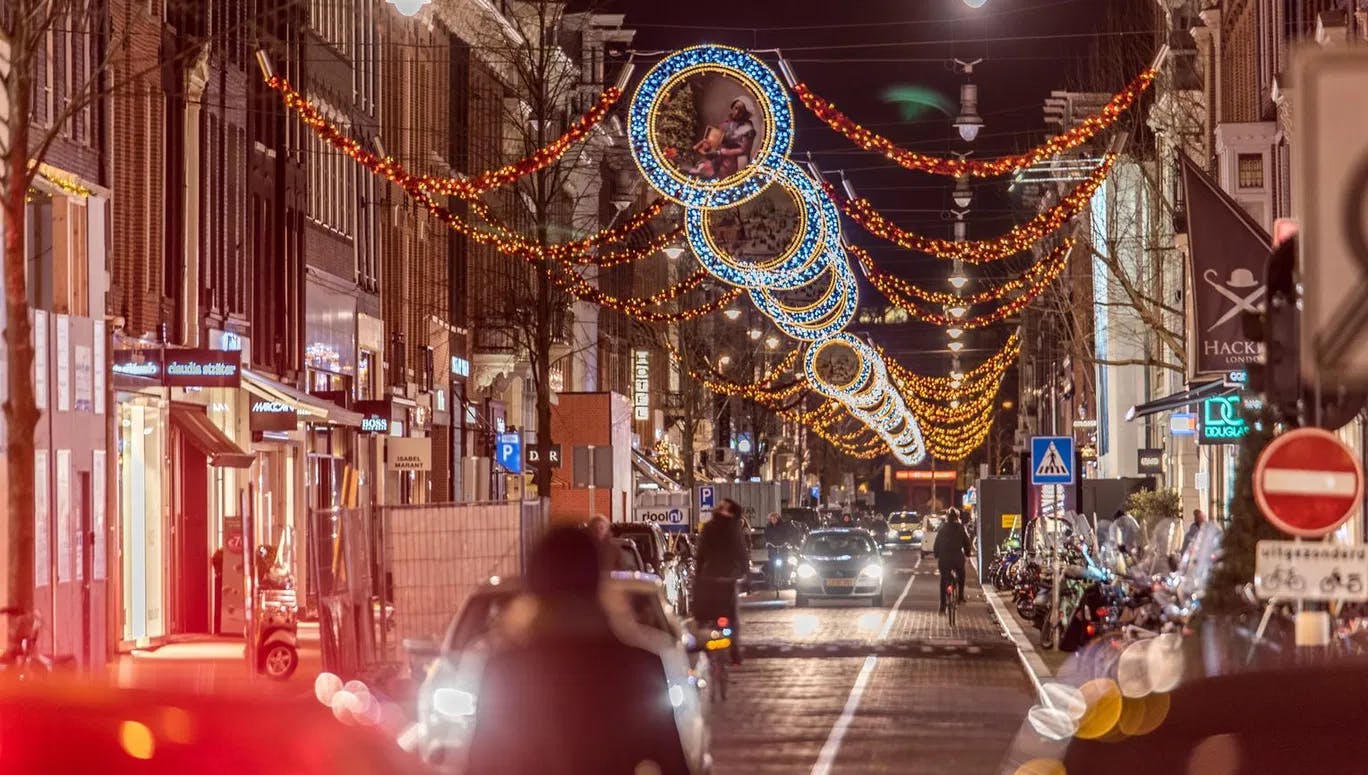
A guide to holidays and festivities in the Netherlands
Start the year with a bang: New Year’s Eve
Got a sweet tooth? Just wait for the traditional midnight snack on New Year’s Eve. In the lead up to the end of the year, dazzling Oliebollen stalls pop up on street corners throughout Dutch cities. These deep-fried doughnuts dusted in powdered sugar are a tasty tradition that originates in the ancient belief that eating them wards off evil spirits. These days, those spirits have less to fear from fireworks set off from every canal, balcony and doorstep: a personal fireworks ban is in place in certain cities including Amsterdam since 2020, although regulations vary per municipality. It’s therefore best to check the rules (website in Dutch) to see what is and isn’t allowed.
A bracing swim in the North Sea is the perfect way to seize the first day of the year ahead – and it isn’t bad for that post-celebratory headache either. One of the biggest collective swims takes place at Zandvoort aan Zee, where thousands run into the swell together. It’s quite the spectacle – even if you are watching from under the blanket at one of the cosy beach bars nearby.
Breaking the fast: Eid Al-Fitr
To mark the end of Ramadan, Muslims across the world and in the Netherlands celebrate the breaking of the month-long fast with Eid Al-Fitr. The festival starts at sunset on the night of the first crescent moon (which in the Netherlands next falls on March 30th-31st, 2025). Eid Al-Fitr is sometimes called Suikerfeest in reference to sweets like baklava that are eaten on the day – but that’s only part of the festivities. Morning prayer at the mosque is often followed by a feast with family and friends, a time where you exchange gifts and give back to the community with charitable contributions.
Paint the streets orange: Koningsdag
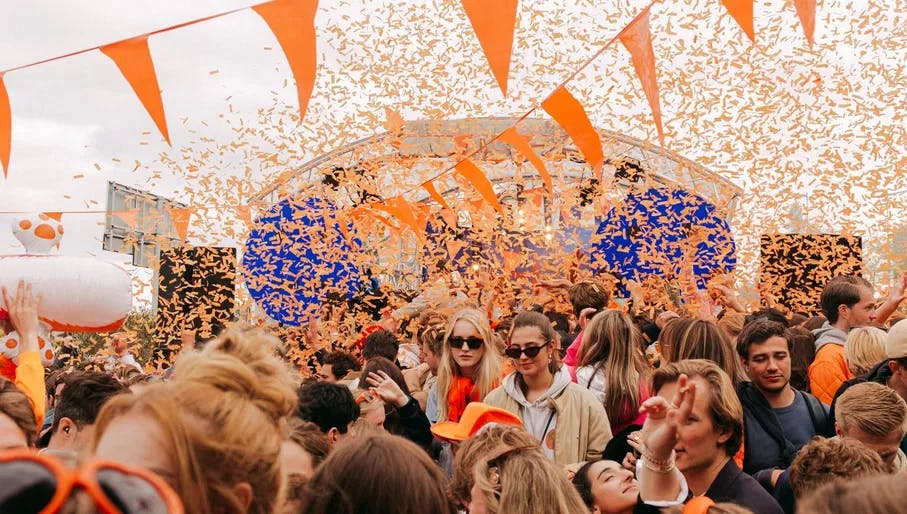
Is orange your colour? Well, on April 27th, it’ll be time to dig out that orange two-piece. On Koningsdag, the Dutch celebrate the King’s birthday by decking out the streets with decorations in the nation’s favourite colour, and even give national delicacies a makeover: orange tompouce, anyone?
Live music often starts the night before on Koningsnacht, but it’s not just one big party. Koningsdag is the only day that you can set up shop on the streets without a trading licence. So, if your lemonade stand was particularly successful back in the day, now’s your time to shine. In Amsterdam, Zuid, Vondelpark and the Jordaan are well-known spots to pick up a good deal on anything and everything, from pre-loved clothes to handmade products.
Fight for freedom: Liberation Day
On May 5th, the Netherlands commemorates the Second World War. War memorials and squares throughout the country hold services, and at 8 pm on the dot a pensive two-minute silence falls as the population stands still to reflect on those lost. In Amsterdam, a televised service takes place at Dam square.
Bevrijdingsdag (Liberation Day) on the 5th doesn’t just mark the end of Nazi occupation, but also a moment to celebrate freedom, human rights and democracy. Free music festivals attract big names and are held across the country in the name of freedom. Feasts and initiatives (like Chef Nadia Zerouali’s recipe for Freedom Soup) are designed to be shared with others and start conversations about worldwide peace.
A culinary tradition: Vlaggetjesdag
Have you got a taste for raw herring? In the harbour of Scheveningen in mid-June, thousands of people celebrate the arrival of the new herring on Vlaggetjesdag with shanty songs, traditional crafts and children’s games… and of course, plenty of the Dutch’s sushi: raw herring. If you can’t make it to the coast, just head to your local fishmonger for a Hollandse nieuwe (new herring).
Stand up for LGBTQI+ rights: Pride
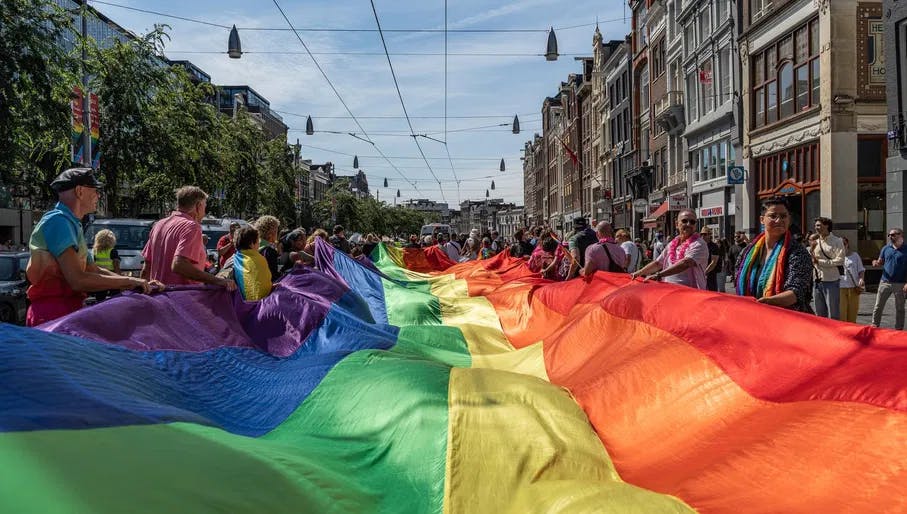
If you thought King’s Day was colourful, just wait until Pride in late July. With its long history of protecting and defending LGBTQI+ rights, the Netherlands’ Pride festivities, which include street parties, conferences and a rich arts and culture agenda, are some of the largest in the world. Accumulating in an internationally-renowned parade made up of a hundred floats along the Prinsengracht, Pride celebrates the queer community, raises awareness about the issues the community face and champions love, acceptance and freedom. And In 2026, it’s going global. World Pride will take place in Amsterdam to celebrate 25 years since the Netherlands became the first country in the world to legalise same-sex marriage.
Better together: Burendag
How well do you know your next-door neighbours? On the fourth Saturday in September, Burendag, or Neighbourhood Day, neighbours take the opportunity to get to know each other a little better, lend a helping hand, or just come together for a borrel (drinks and snacks) on the street. Burendag reminds us that the simple act of having a conversation can go a long way – just give it a try.
A speech from the throne: Prinsjesdag
Each year, Prinsjesdag or ‘Prince’s Day’ is held on the third Tuesday in September. The exact reason for its name is uncertain, but it marks the country’s Budget Day – the official opening of the parliamentary year. The King delivers a speech laying out the government’s plans for the year. In 2025, Prinsjesdag will be held on September 16th.
The festival of new beginnings: Diwali
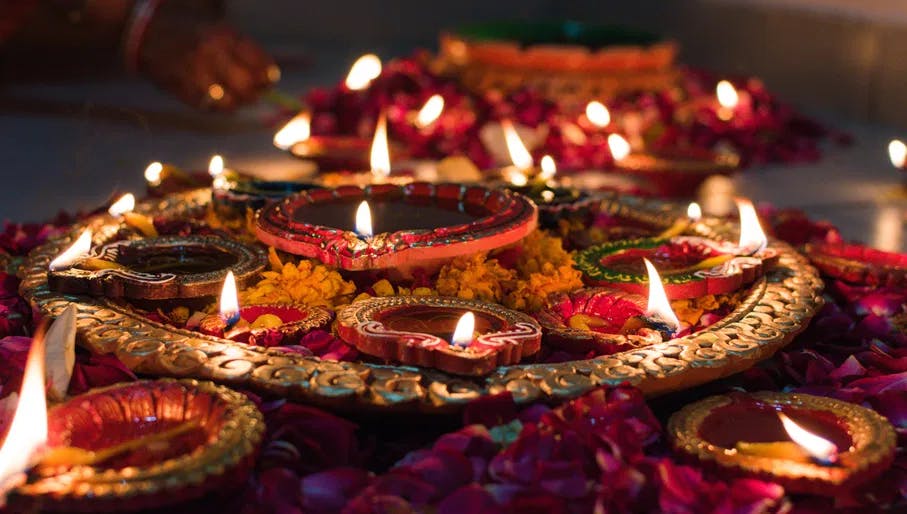
Diwali is one of the year’s most anticipated festivals for Hindus, Sikhs and Jains all over the world. Rejoicing the triumph of good over evil, the festival marks different historical events and stories in each religion. The word comes from the Sanskrit word deepavali, meaning rows of lighted lamps – and indeed, one way many celebrate Diwali is by decorating their homes with colourful lamps or diyas around the house. In Amstelveen, the yearly Diwali festival showcases India’s diversity and beauty through dance performances and a mouth-watering selection of culinary delights at food stalls.
First day of Winter: Sint Maarten
Do you find that Halloween seems a little quiet? That’s because many Dutch children save knocking door-to-door for Sint Maarten on November 11th. Traditionally, Sint Maarten was thought of as a friend of the children, patron of the poor, and the founder of Catholicism. Due to there historically being more Catholic communities in the North of the Netherlands, Sint Maarten is more often celebrated in areas in North Holland than in the South. Today, children light up their neighbour’s doorsteps with paper lanterns and songs in exchange for sweets – a sight sure to warm up the first official day of Winter.
Pepernoten, Pakjesavond, and poems: Sinterklaas
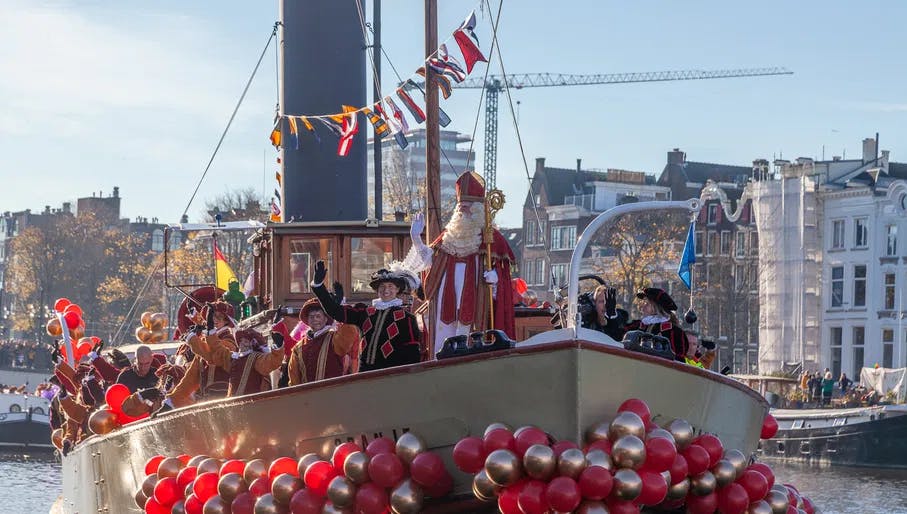
While Christmas is celebrated in the Netherlands, Sinterklaas festivities are where the real wintertime fun kicks in (if you made it into his good books, that is). At least three weeks before Pakjesavond (present night) on December 5th, Sinterklaas arrives in the Netherlands after his voyage from Madrid. Each city and town has a parade to welcome Sint, along with his white horse and his debated helpers, Pieten, who throw sweets, kruidnoten and pepernoten into the crowd.
In the days leading up to the 5th, children leave out their shoes (schoen zetten) in the hope that Sinterklaas might leave them little gifts or chocolate letters to discover the next day. But the real run-in with Sint doesn’t happen until Pakjesavond. On the 5th, when friends and family are gathered round, you’ll hear a knock at the door. You might have just missed Sint by the time you get there, but if you’re lucky, gifts will have been left outside. For older children and adults, now’s the time to unleash your inner poet. The exchange of poems follows a couple of rules: they should rhyme, and be read out loud by the recipient. Otherwise, anything goes – so watch out to be teased. Playfully, of course.
Mark your diaries using a comprehensive list of all the national holiday dates in 2025.
Related articles
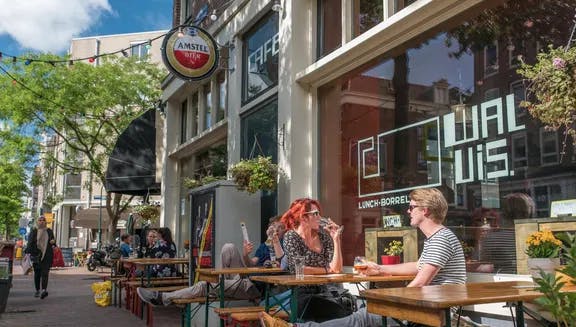
Socialising the Dutch way

Events for internationals in Amsterdam
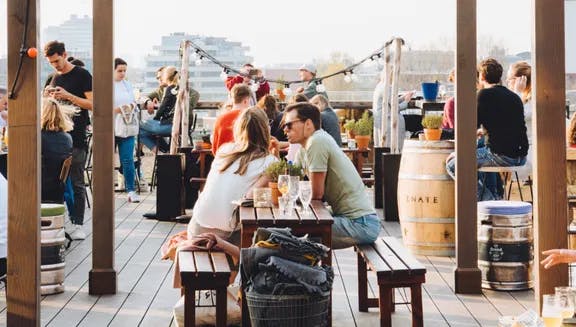
Everything you need to know about day-to-day life in the Netherlands

Five reasons to learn Dutch

How to learn Dutch when your office speaks English
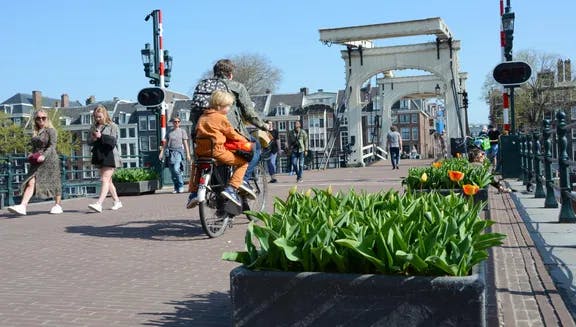
From personal experience: What is it like to relocate to Amsterdam?
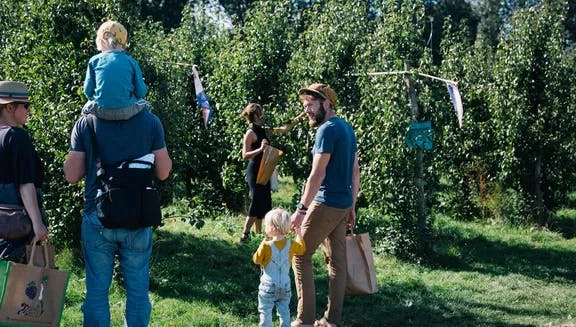
Voluntary work in the Amsterdam Area
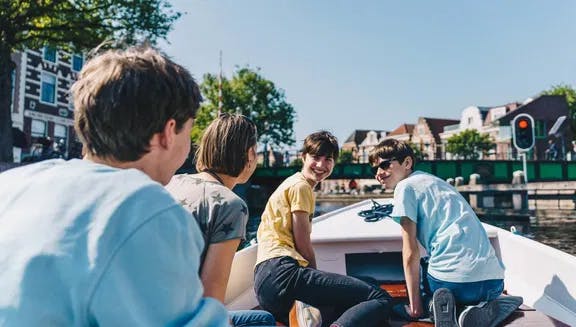
Feeling at home: a video introduction to the Netherlands

How to choose a tutor for private Dutch lessons
